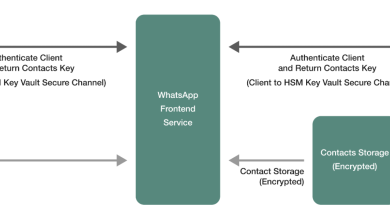How Asking Strategic Questions Can Transform Teams

Asking questions is integral to successfully managing people and projects. Yet even experienced managers often head into meetings with little forethought about the questions that need to be asked, mistaking a vital communication skill for a common activity that we assume is second nature. In my 10 years as a project manager and management consultant, I’ve learned that rethinking this assumption can have a meaningful impact on team dynamics and project results.
In tech organizations, we tend to prioritize hard skills over soft skills and view knowledge of project management methodologies and frameworks as more important than communication, self-leadership, or having a learning mindset. We implicitly assume that highly skilled people know by default how to speak and listen. In reality, team members may have genuine difficulties communicating with one another due to divergent backgrounds and experiences, leading to confusion and conflicts that result in delays or risks.
In this article, I explain how project managers can ask questions that strengthen teams and produce better project results. It’s not a matter of preordained aptitude; posing well-considered, well-phrased questions is a skill that can be honed with practice and dedicated attention.
How Questions Build Self-efficacy and Trust in Teams
Before we investigate strategies for asking good questions, we must consider the objectives of improving this communication skill. First and foremost, posing thoughtful and well-intentioned questions can reinforce trust and self-efficacy—two characteristics that indicate positive team dynamics and are frequently associated with increased productivity. Conversely, asking poorly worded or judgmental-sounding questions can do the opposite.
Self-efficacy refers to a person’s belief in their ability to complete a given task and has been linked to increased motivation.
|
What Does Self-efficacy Look Like in Teams? |
||
|---|---|---|
|
Characteristic |
High self-efficacy |
Low self-efficacy |
|
Problem-solving |
A developer confidently approaches tasks, believing in their ability to find solutions. |
A developer doubts their abilities and is hesitant to progress with a task. Thus, a manager or senior team member must spend extra time on coaching and ensuring the task is implemented on time. |
|
Implementation |
A QA engineer believes in their ability to proactively explore multiple testing methods and choose the most suitable ones. |
A QA engineer conducts limited testing because they are not confident using specific tools. Later, the entire development team spends additional time fixing user-reported issues and releasing updates. |
|
Leadership |
A project manager is confident they can host a risk-identification workshop and ask relevant questions. |
A project manager avoids conducting a risk-identification workshop, feeling unequipped to facilitate such a conversation. As a result, the project encounters avoidable resource allocation issues.
|
Research has also demonstrated a significant relationship between trust and team performance. In simple terms, people who trust each other make for better teams.
|
What Does Trust Look Like in Teams? |
||
|---|---|---|
|
Idea-sharing |
During an estimation session, team members feel free to discuss possible risks, preempting issues that could affect the upcoming phases of a project.
|
|
|
Reliability |
If a team member sees an impediment that could interfere with delivering a task on time, they share this information with the rest of the team at the earliest opportunity so that necessary actions can be taken. |
|
|
Constructive feedback |
In project retrospectives, team members feel comfortable discussing what can be improved based on activities that didn’t go well in the previous sprint or phase.
|
|
Assuming teams are otherwise functional and aligned toward a shared vision, high levels of intrateam trust and self-efficacy tend to correspond with successful project outcomes that deliver business value. The art of asking questions is a key management skill that can reinforce these healthy dynamics.
How to Ask Effective Questions
In my experience, good questions in a management context emerge from an authentic desire to foster a collaborative and positive team environment—and this requires intentionality. The following rules of thumb are important considerations.
Express Genuine Curiosity
Keep questions open to encourage participation, show that you value other team members’ input, and continue building trust. For example, instead of asking a developer in a planning session, “Will this task take you three days?” ask, “How long do you think it will take you to complete this task?”
Avoid “Why” Questions
Team members may perceive “why” questions as intrusive or accusatory, diminishing self-efficacy. Instead of, “Why will it take you three days to complete the task?” try asking, “What’s the reason you think it will take three days for the task to be completed?” In scenarios where it’s mandatory to use “why” questions, such as during a root cause analysis, it helps to alternate them with rephrased versions.
Distinguish Between Directive and Nondirective Questions
Both directive and nondirective questions are valuable depending on a manager’s goals. Directive questions specify the type of response needed and may be necessary when a manager wants to influence the course of a conversation or project. Nondirective questions are more open-ended and are effective when a manager wants to bring people together, enhance creativity, foster a safe space, or maximize learning opportunities.
A directive question could relate to decision-making: “Do you have any concerns with prioritizing bug fixing now and finishing the in-progress feature in the upcoming sprint?” While this framing allows the team member to express reservations about the objectives or timeline, the manager specifies key expectations. However, if there’s time for deliberation, the manager could opt for a nondirective alternative: “How do you think this bug-fixing request should be handled?” Requests for status updates can be either directive (“Have you solved the issue raised by the customer?”) or nondirective (“What options do we have to solve the issue raised by the customer?”).
Ask One Question at a Time
Asking a cascade of questions without waiting for a response will lead to frustration and inefficiency on both sides of a conversation. Often, the team member won’t remember everything that was asked and will only formulate partial responses. As a result, it will take longer for the manager to receive the desired information. It is better to ask one question at a time and raise subsequent questions after receiving the previous response.
Strategic Questions for Specific Project Participants
Managers can encourage healthy team dynamics by tailoring questions for specific individuals and groups, especially when establishing team goals and expectations at the beginning of a project. These audience-specific questions, available for download, establish a baseline of trust and allow individuals to clarify needs and communication preferences.
Questions for Project Managers to Ask Themselves
As a project manager, I have found that building team trust starts with asking myself questions about the purpose and expectations of each team meeting. When I am clear about the answers, it becomes easier to guide the team and other project stakeholders toward our shared goals. As a starting point, I recommend that managers pause and ask themselves the following questions before scheduling any team meeting:
- What is the reason for having this meeting?
- What do I want to achieve with this meeting?
- If participants leave the meeting with only one essential takeaway, what should that be?
- What are the goals of the other meeting participants?
- How long does the meeting need to be to achieve these goals?
- Do I need help? If so, who can help me in my endeavors?
Upon answering these questions, a manager can adjust the agenda and timing of the meeting. They can then invite attendees as needed, marking them as required or optional. Ask yourself, “What’s the cost of this meeting?” If the actual financial cost of staff time likely outweighs the targeted returned value of the meeting, you may need to rethink the meeting strategy.
Questions for Individual Team Members
I always recommend that managers schedule one-on-one conversations with each team member when starting a project. Then schedule another one-on-one midway through initiatives lasting longer than a year or when facing acute team issues, such as mistrust or low self-efficacy. Doing so can clarify expectations and identify individual strengths and weaknesses. With a shared agenda and both attendees arriving prepared to exchange ideas, these meetings generally require 30 minutes at most.
The questions raised during these one-on-one conversations should be open-ended to make space for sharing, information gathering, and engagement, planting the seed for meaningful professional relationships. The following questions are effective:
- What are your needs from me as the project or team manager?
- What are your expectations for working on this team or project?
- What kinds of professional activities bring you the most joy?
- What is your preferred communication and feedback approach?
- What are your professional or career goals?
- What else do we need to discuss now?
The information team members provide in these individual sessions should be used by managers throughout the project life cycle. For instance, during a one-on-one conversation at the beginning of a project, a UX/UI designer once told me that he could work faster using a different tool than the one specified by the client, speeding up project delivery by a couple of weeks. When I raised this matter with the client, they approved moving forward with the team member’s preferred tool. The designer felt heard and valued, and the project gained contingency time—something a project manager always strives for.
Questions for the Entire Team
Once the one-on-ones are complete, it’s time to put the full team in motion. Project or team managers must come to the kickoff meeting prepared to make recommendations based on information team members have already shared. Suppose a QA engineer has mentioned that they prefer automated testing over manual testing. To use their preferred approach, the whole team would need to adhere to the same uniform standard for writing code. The team should reach an agreement on this during the first team meeting.
The kickoff session also presents an opportunity to ask the following questions, which orient the team toward shared goals and expectations:
- What is the problem we’re trying to solve?
- What team principles should we follow?
- When is the best time to share concerns or risks with the team?
- How should we tackle project emergencies as a team?
- What is important when it comes to working together that we have not addressed?
Questions for Clients or Senior Stakeholders
The project manager’s relationship with clients and other senior project stakeholders can influence the entire trajectory of a project. Relationships built upon trust and communication become especially valuable when project changes need to occur. Therefore, asking strategic questions to reinforce client and stakeholder relationships can be crucial to project outcomes. Make sure to address these questions early.
Managers often mistakenly assume client and senior stakeholder expectations are obvious, but as a management consultant, I’ve learned that misalignments are common. Don’t be afraid to ask basic questions, as the responses may clarify mistaken assumptions. Projects in which I took the initiative and hosted a 30-minute discussion like this always proved to be the most successful. I recommend having this sync right at the beginning of the project. The following questions can be a good starting point:
- How does this project align with the organization’s goals and mission?
- What does success look like for you?
- What would happen if we did not pursue the planned project?
- From your perspective, what are the major risks the project is facing?
- What are your expectations from the team?
- What are your expectations from me as a project or team manager?
- How would you prefer to be kept in the loop, in terms of communication channels and frequency?
The questions above can also be adapted for when a manager meets with a supervisor at the beginning of a new project, even if they’ve worked together before. Supervisors will likely provide valuable suggestions that can help managers tweak their approaches, and they may offer reminders about how the work fits into a professional plan.
Strong Teams Need Strategic Questions
The art of asking questions should be viewed as an essential component of any managerial skill toolbox. Leaders can use strategic questions to positively shape the team environment by steering discussions, clarifying objectives, and removing roadblocks.
Posing thoughtful and purpose-driven questions is not a skill that managers come by innately but one that improves through practice and intention. By adhering to the principles of curiosity, openness, and discernment in questioning, managers create an inclusive atmosphere and ensure that the pillars of trust and self-efficacy within their teams remain solid, providing a foundation for business success.



